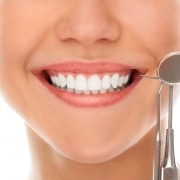4 Ways Drinking Water Can Benefit Your Smile
Most people perfectly understand just how important it is to get in the proper levels of H2O throughout the day. Nevertheless, the benefits of drinking enough water go far beyond good skin, healthy organs, and better vision; your smile actually benefits just the same. Here is a look at some of the ways drinking enough water can be good for your oral health.
1. Prevent issues with bad breath.
It is estimated that one of four people deal with bad breath on a regular basis. While a lot of factors can contribute to bad breath, one factor may be the fact that you are not staying well hydrated by drinking enough water. Water washes away the bacteria in your mouth, helps loosen food particles from your teeth, and keeps your tongue moist. All of this can mean fresher breath.
2. Keep acid levels in your mouth at bay.
The body has a natural acid level that is considered normal, and this level of acidity can fluctuate in your mouth depending on what you eat and drink. Unfortunately, higher-than-usual pH levels can contribute to problems with decay. Drinking water helps to neutralize acidity in your mouth to keep the environment better pH-balanced like the rest of your body.
3. Ensure your soft tissues are well hydrated.
Your teeth are only as healthy as the soft tissues in your mouth. If your gums are not moist and supple, they can be more prone to damage and inflammation. Drinking plenty of water helps to protect the soft tissues in your mouth to encourage a healthier smile.
4. Avoid problems with decay.
Lack of hydration can contribute to tooth decay for a few reasons. As already noted, water helps keep acidity levels at bay and helps to wash food particles and bacteria away from your teeth. When food particles and bacteria are allowed to hang out on your teeth, they can contribute to decay.
Schedule a Dental Checkup in Owensboro or Beaver Dam
At the end of the day, drinking plenty of water is only going to do your body good, and you can grab some advantages for your mouth as well. If it has been a while since you’ve had a dental checkup, reach out to us at Travis Wilson Family Dentistry to schedule an appointment.










